Peek into the peculiar world of Kabourophobia, the intense fear of crustaceans, and uncover its mysterious roots and impacts.
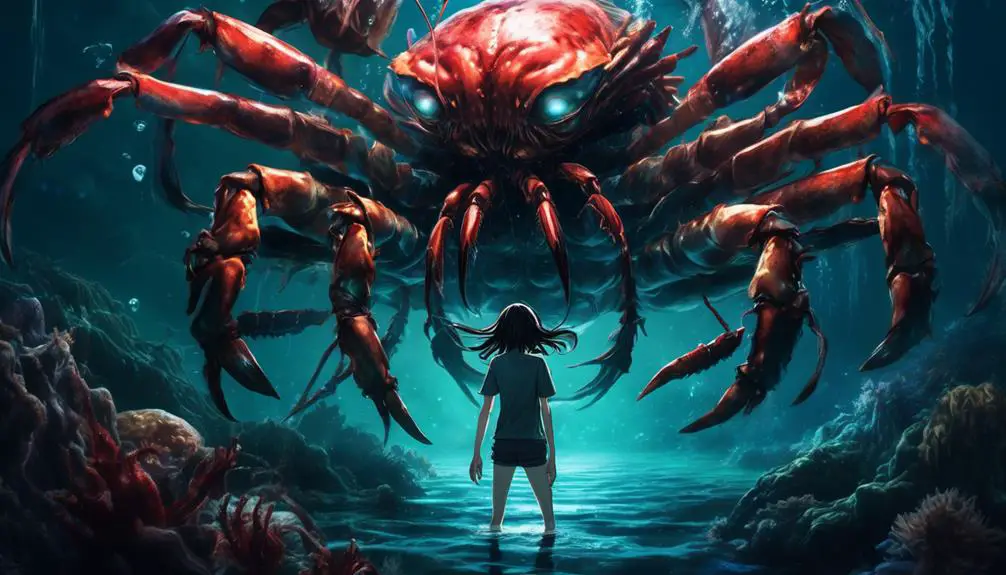
What Is the Fear of Crustaceans Phobia Called?
As you walk along the beach, the crab's sideways scuttle might seem like a dance to some, but to others, it's a nightmare unfolding in broad daylight. This intense fear of crustaceans, believe it or not, has a name – Kabourophobia.
But what leads someone to develop such a specific fear, and how do they cope? Let's wade through the waters of understanding this lesser-known phobia and find out how deeply it can affect people's lives.
Who knows, you might just discover something about your own fears along the way.
Key Takeaways
- Kabourophobia is the fear of crustaceans, such as lobsters or crabs.
- It can significantly impact an individual's life, causing panic attacks, sweating, rapid heartbeat, and nausea.
- Cultural influences, genetic predisposition, and personal experiences can contribute to the development of Kabourophobia.
- Treatment options, such as therapy and medication, can help manage the fear and improve mental health.
Understanding Kabourophobia
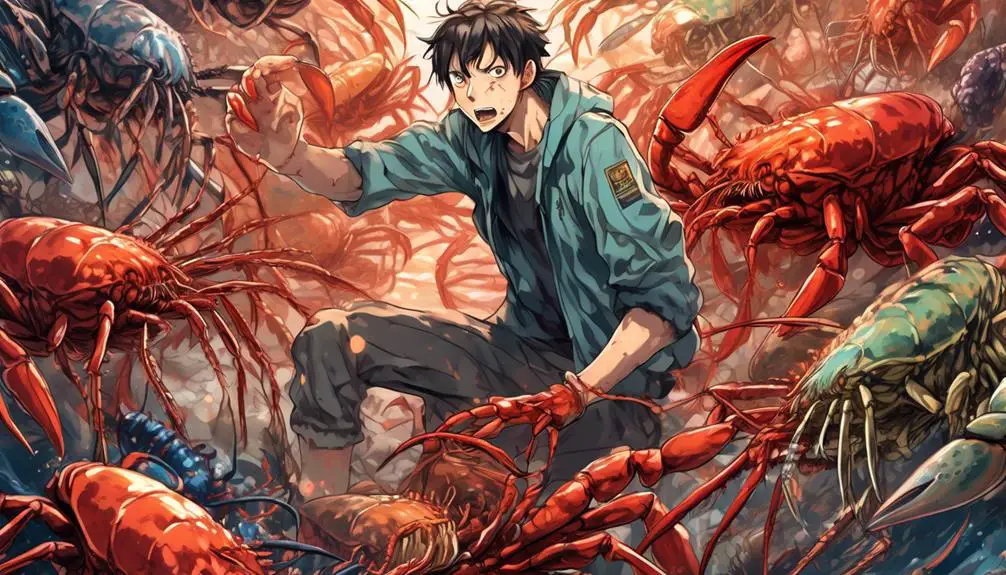
To truly understand Kabourophobia, the fear of crustaceans, it's crucial to delve into its causes, symptoms, and potential treatments, keeping in mind that this phobia, like any other, is deeply personal and can significantly impact an individual's life.
The 'Crustacean Culture Impact' is an interesting facet to consider here. Crustaceans, like lobsters or crabs, play a significant role in various cultures, often as gourmet food. If you're suffering from Kabourophobia, these societal norms can trigger intense fear, causing you to abstain from participating in certain cultural or social activities.
Now, let's talk about the 'Kabourophobia Prevalence.' While there aren't specific statistics on Kabourophobia, specific phobias affect about 19.2 million adults in the U.S. alone, so it's very likely that you're not alone in your fear. It's also important to understand that Kabourophobia isn't just about being 'scared' of crustaceans; it's an irrational, intense fear that can cause panic attacks, sweating, rapid heartbeat, and even nausea.
Understanding the causes can help you comprehend why this fear exists. It could be a traumatic encounter with a crustacean or simply an inherent fear of their alien-like appearance. But remember, it's not your fault, and it's okay to seek help.
Origins of Crustacean Fear
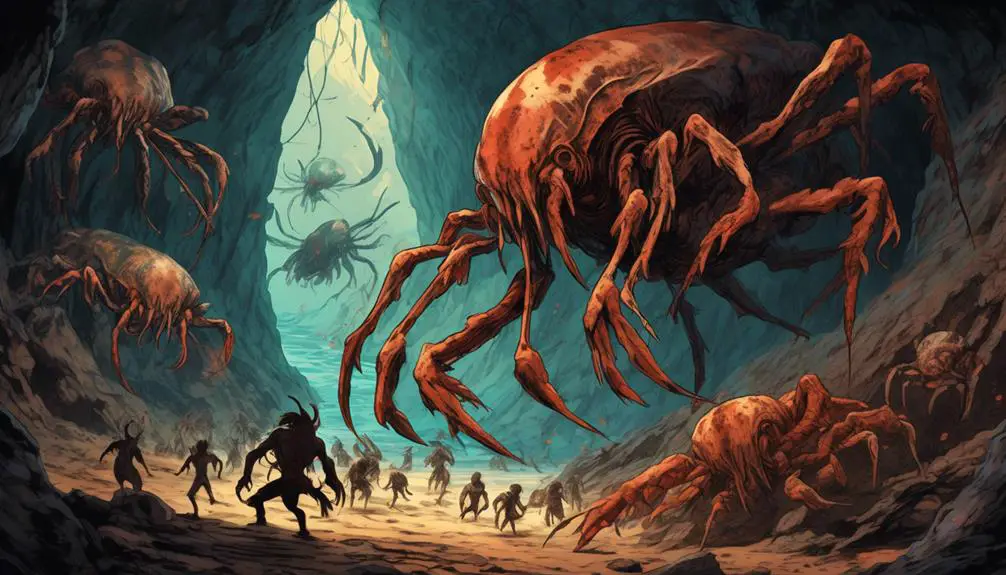
Having touched on the prevalence and impact of Kabourophobia, let's now explore where this fear of crustaceans might originate. The roots of this fear can be traced back to a combination of cultural influences and genetic predisposition.
Cultural influences play a significant role. For instance, in societies where crustaceans are considered taboo or associated with negative beliefs, you're more likely to develop a fear of them. Certain cultures view these marine creatures as symbols of evil or misfortune. If you're brought up in such an environment, your fear of crustaceans isn't just about the creatures themselves but also about the negative associations that your culture has attached to them.
On the other hand, genetic predisposition can't be overlooked. Fear, in many ways, is a survival mechanism. Our ancestors who were afraid of specific threats were more likely to survive and pass on their genes. So, if your ancestors had a reason to fear crustaceans, it's possible that this fear was passed down to you. We also can't ignore the role of personal experiences. A traumatic encounter with a crustacean at a young age can instill a lifelong fear.
Understanding the origins of your fear can help you better manage it. Recognize that cultural influences and genetic predisposition aren't definitive causes, but potential contributors to your phobia. It's not about blaming your culture or genes, but understanding how they might've played a part in shaping your fear.
And remember, while these factors might've influenced your fear, they don't have to control it. You have the power to overcome your fear of crustaceans.
Symptoms of Crustacean Phobia
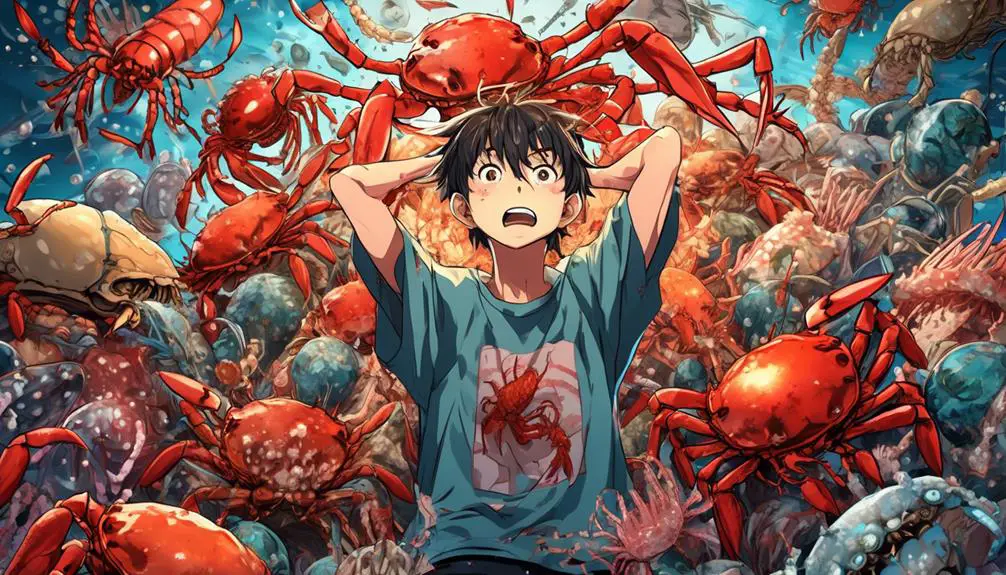
When you're grappling with Kabourophobia, a variety of symptoms may manifest, ranging from slight discomfort to severe panic. You might experience rapid heart rate, shortness of breath, trembling, or even a full-blown panic attack at the sight or mere thought of crustaceans.
Phobia misconceptions often lead people to dismiss these reactions as overreactions or simple 'quirks'. However, it's essential to understand that phobias like Kabourophobia are legitimate psychological conditions, not just exaggerated fears. They're often rooted in deep-seated anxiety and can have a profound impact on your daily life.
The phobia impact can extend far beyond the immediate reaction to crustaceans. You might find yourself going out of your way to avoid seafood restaurants, beaches, aquariums, or any place where you might encounter these creatures. This can limit your social interactions and lead to feelings of isolation.
Moreover, you may also experience anticipatory anxiety, constantly worrying about potential encounters with crustaceans. This persistent fear can disrupt your sleep, impact your concentration, and generally lower your quality of life.
It's crucial to remember, though, that you're not alone in this struggle. Many people grapple with phobias, and there's no shame in seeking help. Therapy and medication can be effective in managing these symptoms, enabling you to reclaim control of your life.
Recognizing the symptoms of Kabourophobia is the first step towards understanding and addressing this phobia. By debunking the misconceptions and acknowledging the significant impact it can have on your life, you're well on your way to overcoming it.
Common Triggers for Kabourophobia
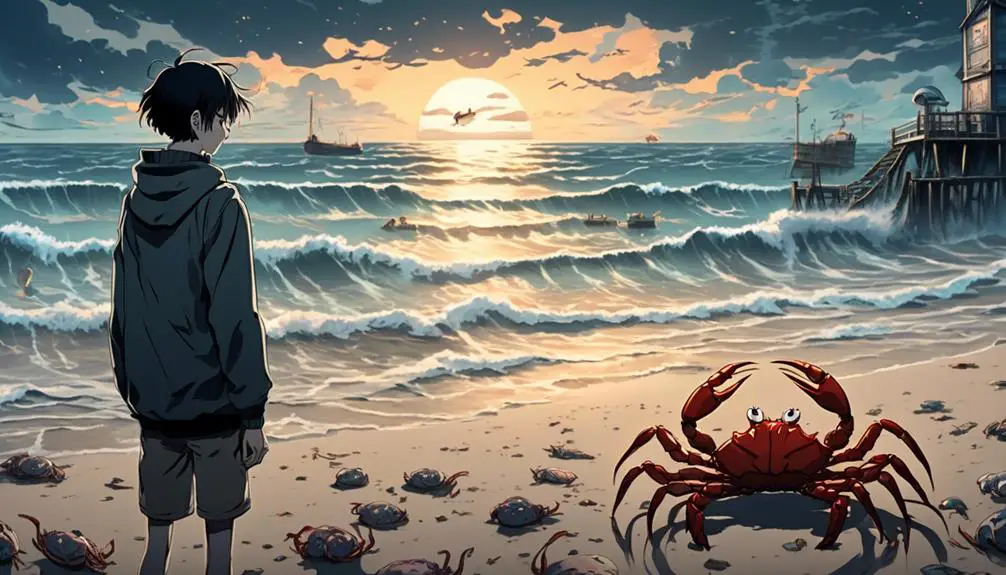
Understanding your symptoms is just half the battle; you must also identify what triggers your Kabourophobia to effectively manage and overcome this fear. Identifying these triggers is crucial.
The most common triggers for Kabourophobia often revolve around direct or indirect contact with crustaceans, but can also include crustacean allergies or cultural influences.
Crustacean allergies are a significant trigger. If you're allergic to crustaceans, your body's reaction can be so severe that it triggers a fear response. You might experience hives, a swollen tongue, or even difficulty breathing when exposed to shellfish. Over time, this physical reaction can morph into a psychological fear. You may start associating the sight or thought of crustaceans with your allergic reactions, intensifying your Kabourophobia.
Cultural influences can also play a big role. If your culture regards crustaceans with fear or disgust, you're more likely to develop Kabourophobia. You might've been taught from an early age that crustaceans are dangerous, dirty, or even taboo. This ingrained belief can trigger an intense fear whenever you're exposed to anything related to crustaceans.
It's important to remember that triggers can vary from person to person. Your trigger might be something as specific as the sight of a lobster in a tank at a seafood restaurant or as broad as a documentary about marine life. Once you've identified your triggers, you can start working on strategies to manage your fear.
You're not alone in this struggle, and understanding your triggers is a big step toward conquering your Kabourophobia.
Psychological Perspectives on Kabourophobia
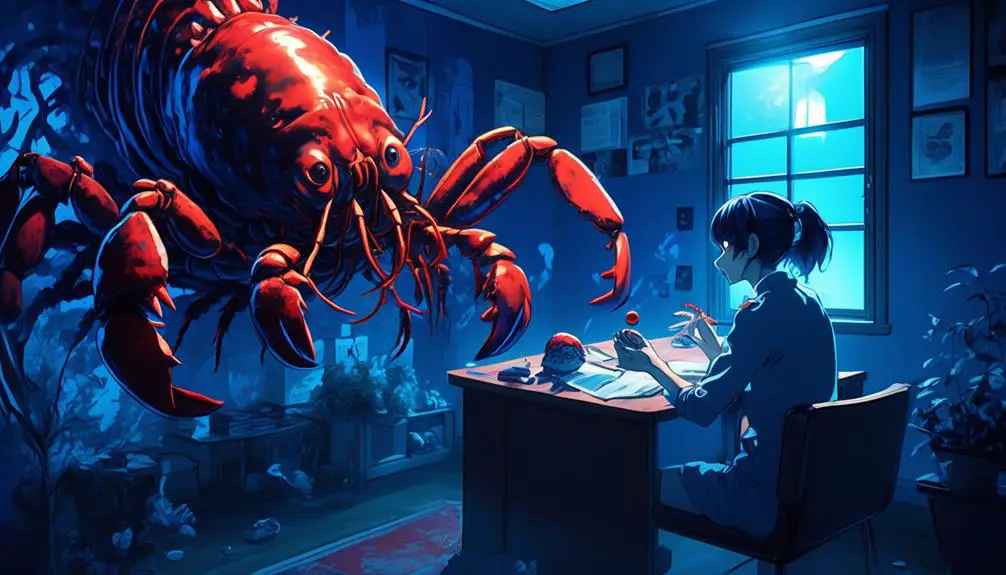
To wrap your head around Kabourophobia, it's essential to delve into the psychological perspectives, which can provide invaluable insights into why you might develop this specific fear and how it can affect your mental health.
This phobia falls under the Phobia Classification of 'Specific Phobias', a category characterized by enduring, irrational fears towards specific objects, situations, or creatures – in this case, crustaceans.
A range of Psychological Factors can contribute to the onset of Kabourophobia. Childhood traumas, such as a frightening encounter with a crustacean, can trigger this phobia. Your brain's natural response is to associate that fear with all crustaceans, leading to avoidance behaviors. Alternatively, you might develop Kabourophobia due to learned behavior; if someone influential in your life fears crustaceans, you might unconsciously adopt that fear.
Living with Kabourophobia can be mentally taxing. You might experience extreme anxiety when exposed to crustaceans, even in images or discussions. This constant state of fear can lead to stress, impacting your overall mental health. Additionally, the avoidance behavior associated with this phobia might restrict your activities, causing social isolation or feelings of embarrassment.
Understanding the psychological perspectives of Kabourophobia isn't about labeling you as 'irrational' or 'overreacting'. Rather, it's about empathizing with your struggle, shedding light on the underlying causes, and emphasizing that help is available. Techniques like cognitive-behavioral therapy can rewire your fear responses, enabling you to manage your phobia effectively. Remember, recognizing your fear is the first step towards overcoming it.
Treatments for Crustacean Fear
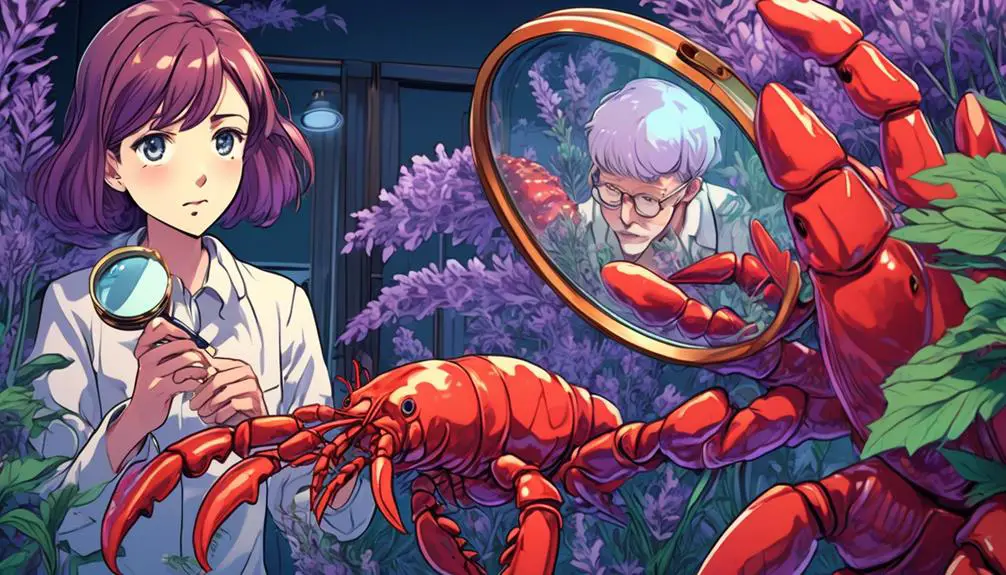
Now that we've explored the psychological aspects of Kabourophobia, let's examine the treatments available to help you overcome your fear of crustaceans. It's critical to remember that you're not alone in this struggle. There are numerous resources and methods available to aid you in your journey to conquer this fear.
One effective treatment option is joining phobia support groups. These groups can provide a safe space for sharing your experiences and fears, and for learning from others who are facing the same challenges. You'll find comfort in knowing that you're not the only one grappling with Kabourophobia. Furthermore, these groups often bring in experienced therapists who can provide professional advice and coping strategies.
Another common treatment is therapy, particularly Cognitive Behavioral Therapy (CBT). CBT helps you understand and change thought patterns leading to fear and anxiety. This therapy can provide you with the tools to confront and manage your fear of crustaceans over time. It's a gradual process, but with patience and commitment, it can lead to significant improvements.
In more severe cases, anti-anxiety medications may be prescribed. These medications can help manage the physical symptoms of anxiety that often accompany phobias. However, they're often used in conjunction with therapy, not as a standalone solution. It's essential to consult with a healthcare provider to understand the potential benefits and risks of these medications.
Real-Life Stories of Kabourophobia
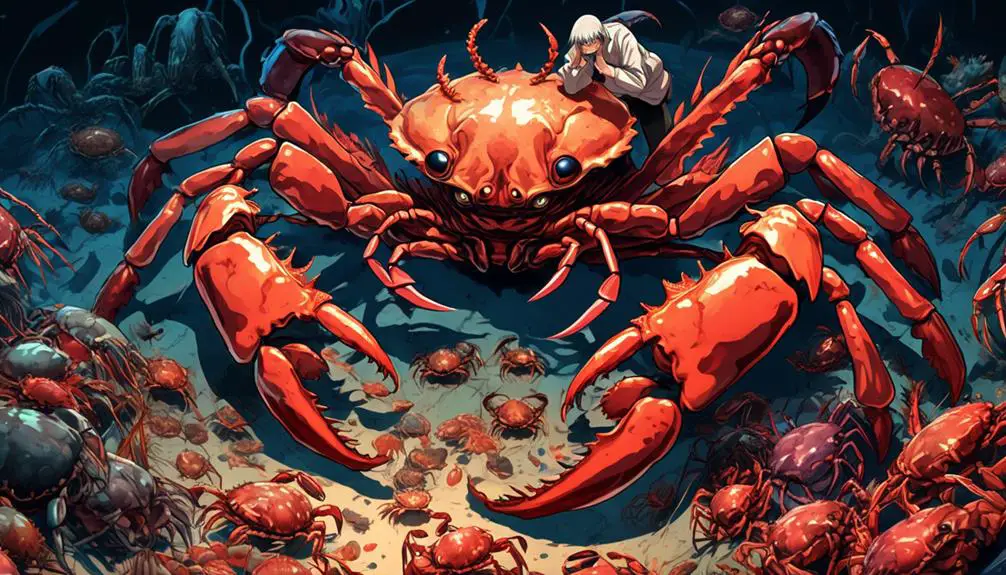
Let's delve into a few compelling accounts of individuals who've faced Kabourophobia head-on, shedding light on their struggles and triumphs in confronting this unique fear.
Take Mary, a renowned chef. She's always had a knack for creating vibrant dishes, but her Kabourophobia impacted her career gravely. She'd freeze up at the sight of a crab or lobster, making it impossible for her to cook or even serve these dishes. However, after intensive therapy, Mary emerged triumphant, with a newfound ability to handle crustaceans and even specialize in seafood cuisine. Her story highlights the potential of overcoming the Phobia Impact with dedication and professional help.
Then there's John, a Hollywood actor and one of our Celebrity Sufferers. His fear of crustaceans was a well-kept secret until a prank involving a lobster on set sent him into a panic. It was a wake-up call for John, leading him to seek therapy. With time, he was able to gradually desensitize himself to crustaceans, a victory that he credits to his fearless therapist.
Lastly, consider Jane, a marine biologist. Her fear of crustaceans posed a significant challenge in her field of study. However, Jane used her scientific mind to her advantage. She began studying crustaceans more intensely, trying to understand them rather than fear them. This approach helped Jane significantly reduce her fear and continue her work passionately.
These stories illustrate that Kabourophobia, while deeply personal and challenging, can be confronted and overcome. The journeys of Mary, John, and Jane serve as inspiration for anyone grappling with this phobia.
Conclusion
In the end, it's essential to understand that kabourophobia, or the fear of crustaceans, is a genuine struggle for some. This phobia can cause severe anxiety and interfere with daily life.
However, with the right support and treatment, it's entirely possible to overcome. Remember, it's okay to seek help. Everyone has their own fears, and acknowledging them is the first step towards conquering them.
You're not alone in this journey.
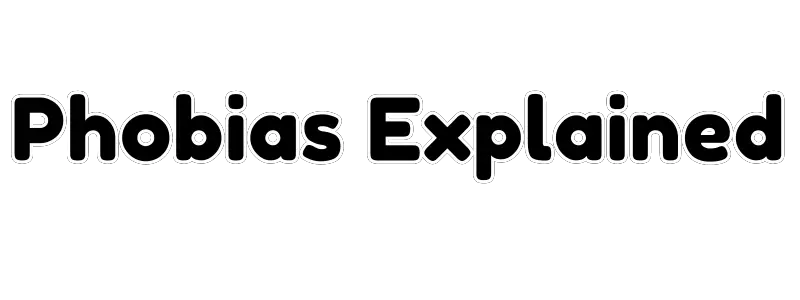

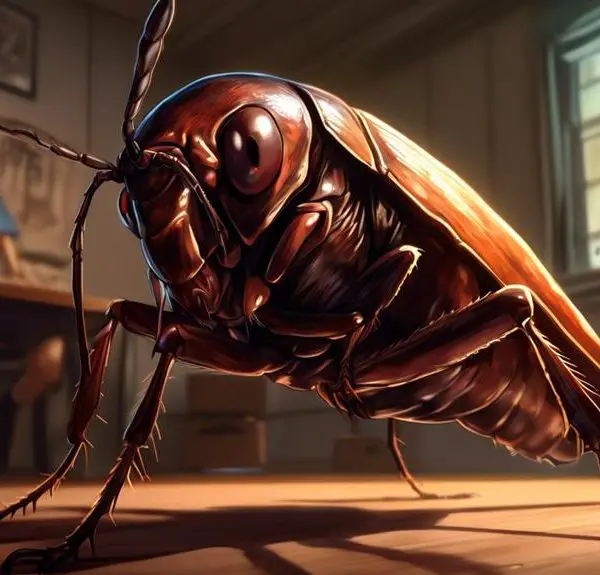
Sign up